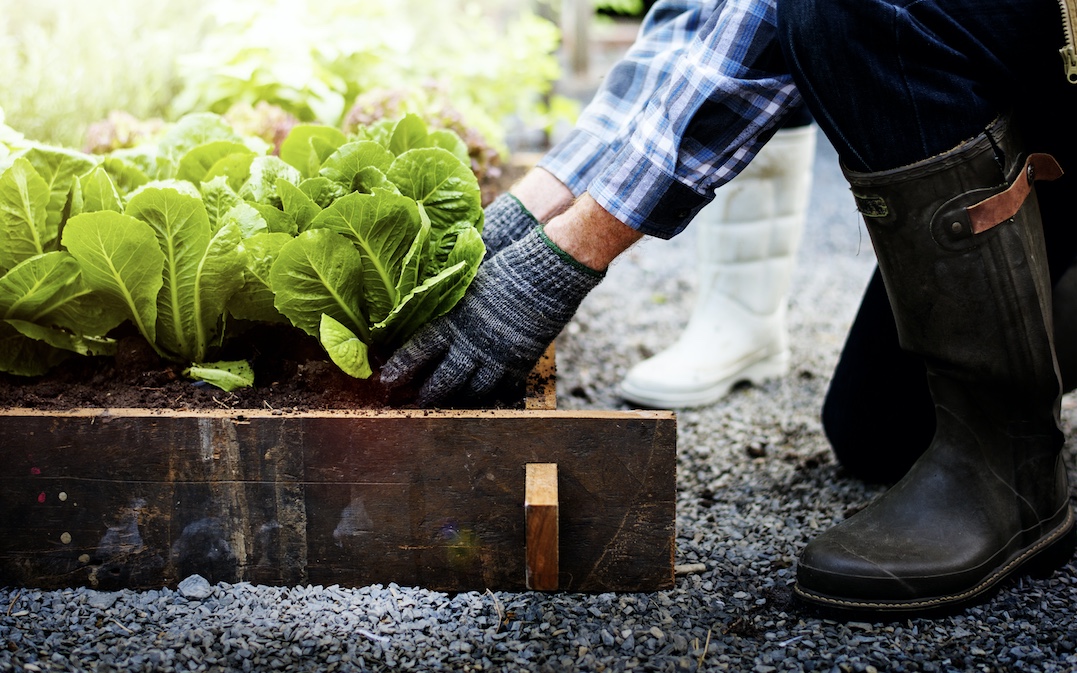In our Summer 2020 issue, our resident gardening expert Hans Wieland shared his thoughts on the value of self-sufficiency: a timely and pertinent concept for our times. We loved hearing his wisdom on the subject! Read his article below.
Self –sufficiency revisited
Thriving in urgent times
by Hans Wieland
The concept of self-sufficiency, so important in the debate about the future of our planet, is as rich and complex as the debate itself, and evolves all the time.
The worldwide coronavirus pause led to an outburst of activities previously not seen in that magnitude: gardening and growing our own food, baking bread, cooking and fermenting, home brewing and DIY. Seed suppliers had to temporarily close their online shops, because of unprecedented demands. In some supermarkets, flour was in short supply. We struggled to order wine yeast online. What suddenly seemed to become a necessity in 2020 was a choice for us nearly 35 years ago: a bit more self-sufficiency!
Living the Good Life
When we began our rocky journey to a more self-determined and self-sufficient life in 1985, we used “The Complete Book of Self-Sufficiency” by the late John Seymour published in 1976 for inspiration and guidance. Taking it of the shelf now the first few paragraphs make for interesting reading: ”Self-sufficiency is not going back to some idealised past in which people grubbed for their food with primitive implements and burned each other for witchcraft….On the contrary, it is the striving for a higher standard of living, for food which is fresh and organically grown and good, for a good life in pleasant surroundings, for the health of body and peace of mind…”.
Back then, a better life meant living off the land in harmony with nature, growing and producing as much food as possible, but it also meant a more self- determined existence. In an interesting twist of fate, as many people and families from continental Europe and the UK moved to Ireland in the late 70’s and early 80’s (when deserted cottages and land were cheap), many Irish people at the same time moved in the opposite direction for work, as unemployment in Ireland was high.
What happened next…
What happened next was commented on by the former TV presenter and current Irish Times columnist Michael Viney, who himself left Dublin in 1977 with his family for a simpler life on one acre in County Mayo. In an article from 25th May 2002, he wrote: “Self-sufficiency, which sought to express an attitude rather than an absolute, died a little of embarrassment. It claimed too much for a lifestyle that has rarely gone beyond a voluntary frugality in the countryside and a lot of hard work in growing, rearing and processing food (I leave out ‘simplicity’ – there is nothing simple about it).”
Self-sufficiency revisited in a time of crisis
Fast forward to 2020, with movement restrictions in place and government advice to “Stay at Home”. The idea of self-sufficiency has suddenly gone through an unexpected revival. Suddenly, we have been forced to rethink how we live and consume. It opens up a new debate about alternative lifestyles, our ecological footprint and sustainable living concepts.
I met John Seymour in 2001 – when his classic book was re-published in a new look edition – and asked him had he a message. His answer was: “Would I advise people to follow this lifestyle? I wouldn’t advise anybody to do anything. The purpose of this book is not to shape other people’s lives but simply to help people to do things if they decide to. This way of life suits me … and it has prevented me from doing too much harm to our poor planet.”
So, in that spirit, I suggest seeing the current restrictions as an opportunity to re-think, re-boot and re-start, to see how far our resilience can go. This is not about being 100 per cent self-sufficient, but about the right balance of ‘growing it yourself’ on the one hand, and shopping sustainably and ethically and thus supporting local producers, markets and shops on the other.
Here are my 10 tips on what you could do:
1. For the real adventurers: Plant up your lawn with vegetables, fruit bushes and trees and get a polytunnel.
2. For people with little space: Grow three herbs that you will not buy for a year, e.g. chives, parsley, coriander.
3. For people with more space and all gardeners, who haven’t done this before: Grow lettuce all year round, choosing the best variety for each season, cut and come again varieties, oriental leave mixes, endive and chicory and lambs lettuce.
4. For the outdoors type: Forage for some wild plants and make seasonal lemonades, e.g. elderflower, red clover, meadowsweet.
5. For wine lovers: Make a country wine, e.g. gorse flower wine, red currants, elderberry.
6. For the health conscious: Start fermenting and make seasonal kimchi and sauerkraut.
7. For people without a garden: Order a weekly vegetable box from an Irish farm.
8. For animal lovers: Keep some hens, our neighbours got theirs from Rescue Hens Ireland and soon you will trading in eggs.
9. For the ones with itchy feet: Plan one long holiday (3 weeks), maybe travel by train!
10. For book worms: Read John Seymour’s book on Self Sufficiency.
…and finally:
If you are still pondering the question of whether one can be self–sufficient regarding food, here is how people on a plant based diet might do it.
When I worked at The Organic Centre people often asked how much land is needed to feed a family with vegetables, and my former colleague Klaus Laitenberger always answered: “A plot of about 200sqm is sufficient for complete self-sufficiency in vegetables. And 200sqm is exactly 1/20 of an acre. So, if you think about it, isn’t it fantastic news that one acre could feed twenty families.”
Stay safe, stay healthy and become a bit more self-sufficient! Feedback is always welcome to: hanswwieland@gmail.com


